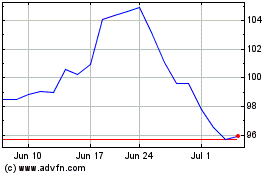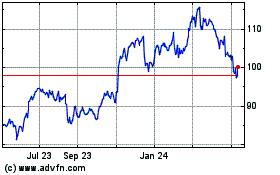By Yuliya Chernova | Photographs by Bess Adler for The Wall Street Journal
In late March, Alexander Klimenko, 81 years old, settled on a
stool in his local pharmacy in Sheepshead Bay, Brooklyn. A nurse
jabbed his arm with the Johnson & Johnson Covid-19 vaccine
after explaining the procedure in Russian.
Mr. Klimenko, who takes care of his health and regularly jogs to
Brooklyn's Manhattan Beach for a swim in the ocean, got vaccinated
more than two months after he became eligible, even though he lives
in a neighborhood that in recent months has had one of the highest
Covid-19 death rates in the city.
He hadn't been sure where and how to sign up for the vaccine, he
said, so he put it off until an acquaintance told him about
availability at the Voorhies Health Pharmacy. Mr. Klimenko had
walked in and put his name on the list. "Lyova told me he will call
me when they get a shipment," Mr. Klimenko said, using an
affectionate form of the first name of Lev Fuzaylov, owner and
pharmacist at Voorhies Health. A couple of days later Mr. Klimenko
got the shot.
Community pharmacies like Voorhies Health play a crucial role in
reaching New York City's remaining unvaccinated population.
By virtue of being local, as well as by the personal connection
they have with their patients, often in their native languages,
small non-chain pharmacies are able to serve those reluctant or
unable to travel to mass-vaccination sites or navigate online
registration, as well as those hesitant to get the shot. One in
four Americans put their pharmacy as their first or second choice
for where they would like to get vaccinated, according to a
February survey by the National Community Pharmacy Association,
which represents 21,000 independent pharmacies nationwide.
Yet independent pharmacies have struggled to obtain vaccines,
frequently getting them later than other providers. About half of
independent pharmacists around the nation said that their vaccine
supply has been inadequate, according to an April survey by the
National Community Pharmacy Association.
Independent pharmacies in New York City have received just shy
of 300,000 doses to date, compared with around 1.13 million at
chain pharmacies, according to the city's health department. Large
drugstore chains such as CVS Health Corp. and Walgreens Boots
Alliance Inc., are getting supply directly from the federal
government, while independent pharmacies go through third parties.
The city has provided doses to about 200 independent
pharmacies.
"We have worked on capacity building, readiness for receiving
vaccine and on allocation of vaccine to independent pharmacies and
we're grateful for all they do to vaccinate New Yorkers," a
spokesman for the city's health department said
Mr. Fuzaylov, of Voorhies Health Pharmacy, said obtaining
vaccines has proven difficult. Glitches with the New York City
Immunization Registry also prevented him from uploading required
patient information for a month, he said. A technical issue that
the city has been working to address has been causing such
problems, according to the health department.
Administering the shot is also labor intensive and costly, Mr.
Fuzaylov said. Medicare increased payments to $40 a dose for the
J&J vaccine in mid-March from $28. But Medicaid continued
paying just $13.23 a dose, he said.
Mr. Fuzaylov was finally beginning to streamline the undertaking
and planned to vaccinate more than 70 people with the J&J
vaccine on April 13 at an adult daycare center in Sheepshead Bay
near his pharmacy. He called off the immunization clinic when he
learned of the federal government's call to pause the
administration of the J&J vaccine because of concerns over
potential side effects.
"I didn't expect it to be that much work," Mr. Fuzaylov said of
administering vaccines.
The state of New York had 2,813 non-chain pharmacies in 2019,
more than any other state, according to a report by Pharmaceutical
Care Management Association, a group of pharmacy-benefit
managers.
Philip Luk, owner of the recently established Phils Pill
Pharmacy in Woodhaven, Queens, said he has been trying to provide
vaccines to his customers. Woodhaven's Covid-19 positivity rates
have been double that of the city's overall rate in recent months.
Mr. Luk also said he hoped offering the vaccine would bring in more
income and attract new clients.
On Feb. 1, Mr. Luk placed his first order for the vaccine
through an administrator of the Federal Retail Pharmacy Program.
For 13 straight weeks, his orders for vaccines were canceled
without a stated reason.
Mr. Luk finally got his first batch of 100 doses of the J&J
vaccine on April 1. By April 6 he administered all of them and
filled a seven-page wait-list with names of more people seeking the
vaccines.
The following week Mr. Luk ordered 300 more doses. Soon he
learned that the new order was canceled.
"It's driving me crazy," Mr. Luk said.
Companies that help the federal government deploy vaccines to
some independent pharmacies say supply is improving but still isn't
meeting demand.
Cardinal Health, a drug wholesale company that is one of the
administrators of the Federal Retail Pharmacy Program in New York
City, and the administrator used by both Voorhies Health and Phils
Pill Pharmacy, said that just over half of the orders placed by its
participating independent pharmacies in the city have been
fulfilled as of April 12.
A representative of Cardinal Health said the company relies on
New York City's Department of Health priorities to determine which
pharmacies get the vaccines first. The city established priority
ZIP Codes in January and those include Woodhaven and Sheepshead
Bay.
Good Neighbor Pharmacy, part of AmerisourceBergen, a drug
wholesale company and an administrator for the federal program,
recently began serving New York state for the first time, based on
the direction of the Centers for Disease Control and Prevention.
Forty-five pharmacies in the state were able to get vaccines
through Good Neighbor Pharmacy, with some of them getting fewer
doses than they requested due to supply constraints, the company
said. Of those, 17 paused administering shots through the company's
program this week because they had received the J&J
vaccine.
"We are getting to more stores, but we are still not swimming in
vaccines," said Jenni Zilka, a senior vice president of Good
Neighbor Pharmacy.
The Biden administration announced on March 29 a commitment to
expand the number of pharmacies in the Federal Retail Pharmacy
program to 40,000 from 17,000 by Monday.
Good Neighbor Pharmacy, meanwhile, is using the CDC's Social
Vulnerability Index to determine which pharmacies get the vaccines
first, Ms. Zilka said. But that index doesn't necessarily match
where positivity rates are currently highest in the city, according
to city data.
Despite the inconsistent vaccine supply, Mr. Fuzaylov's pharmacy
has administered about 200 doses so far.
On an afternoon in late March, an elderly couple walked into his
pharmacy to sign up the husband for the vaccine. After talking to
Mr. Fuzaylov, the man's wife decided to get an appointment, as
well. Mr. Fuzaylov's assistant added their contact information to a
wait-list notebook filled with rows of names.
"I'm glad I'm doing it, as hard as it is," Mr. Fuzaylov
said.
Write to Yuliya Chernova at yuliya.chernova@wsj.com
(END) Dow Jones Newswires
April 18, 2021 12:14 ET (16:14 GMT)
Copyright (c) 2021 Dow Jones & Company, Inc.
Cardinal Health (NYSE:CAH)
Historical Stock Chart
From Mar 2024 to Apr 2024

Cardinal Health (NYSE:CAH)
Historical Stock Chart
From Apr 2023 to Apr 2024
